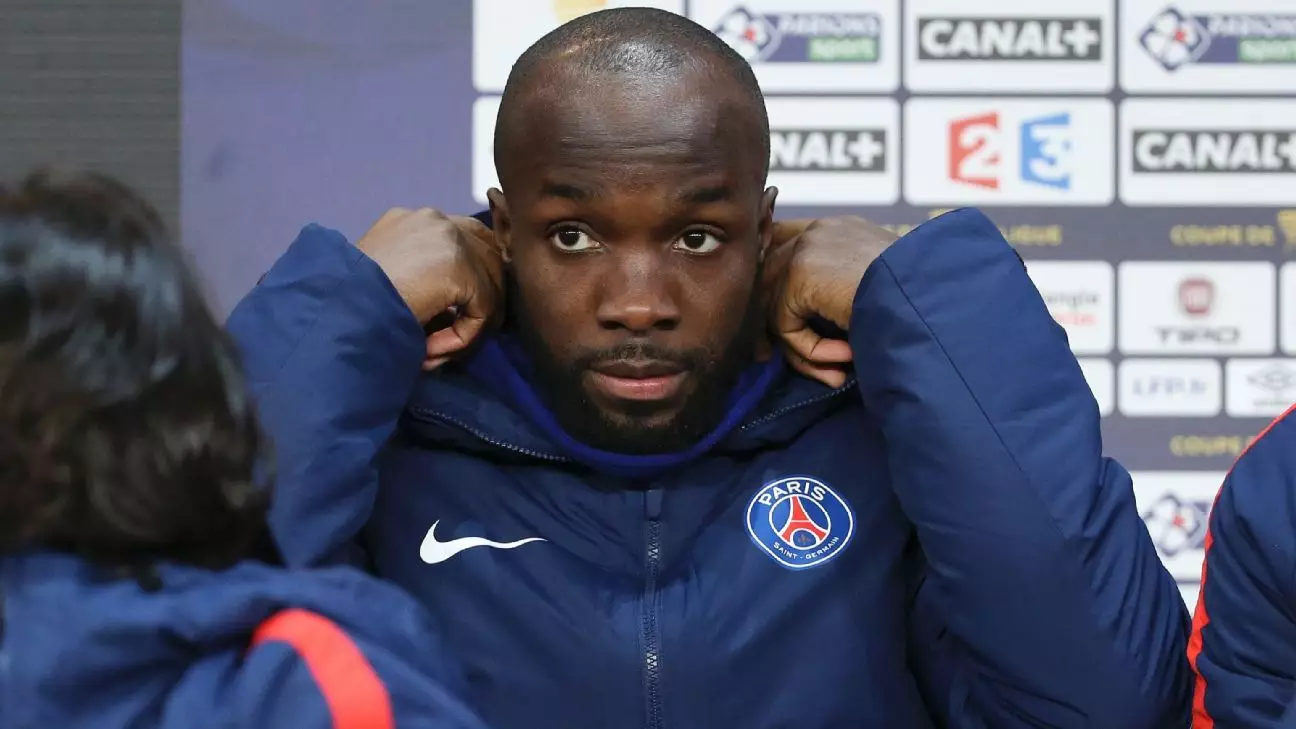Lassana Diarra’s recent legal victory marks a seismic shift in how we perceive authority and fairness in professional football. For years, FIFA’s rules have wielded immense power, often leaving players like Diarra powerless to challenge decisions that affect their careers and futures. His successful claim for €65 million not only signifies a personal victory but ignites a broader debate about the legitimacy of FIFA’s governance. Diarra’s stance reveals the cracks in an ostensibly all-encompassing system, exposing its flaws and prompting crucial questions about fairness, regulation, and the rights of individual athletes.
This case is more than a monetary dispute; it’s a symbolic confrontation against a giant institution that has historically operated with a monopoly-like grip over the sport. Diarra’s willingness to challenge FIFA—a body often shielded from legal scrutiny—demonstrates remarkable courage and a desire for systemic reform. His victory underscores the importance of holding powerful institutions accountable and could act as a catalyst for more athletes to seek justice when their rights are compromised.
Legal Unveiling of FIFA’s Flawed Regulations
At the core of this case lies a critical legal examination of FIFA’s transfer rules, which have long been a contentious issue. The Court of Justice of the European Union found elements of FIFA’s regulations to be incompatible with EU labor and competition laws. Essentially, FIFA’s policies often restrict player movement and impose financial liabilities on players and clubs, hindering free competition and mobility within the European Union.
Diarra’s decade-long battle highlights how institutional policies can sometimes contradict fundamental legal rights. His dispute, initiated after a contractual breakdown at Lokomotiv Moscow, exposes a system where regulations potentially serve to protect clubs’ interests at the expense of players’ autonomy. It’s a reminder that governing organizations’ rules should serve the sport’s integrity, not entrench their dominance or inhibit athlete rights.
The landmark decision by the European Court of Justice exposes FIFA’s transfer regulations as outdated and potentially monopolistic. This judgment challenges FIFA to modernize and align its policies with prevailing legal standards—something it has acknowledged publicly but not yet fully implemented. It reveals that even the most powerful sports organizations are susceptible to legal forces that prioritize fairness and competition.
The Broader Implications for Player Rights and Power Structures
Diarra’s legal confrontation extends beyond personal vindication; it illuminates the systemic inequality inherent in global football. His advocacy, supported by FIFPRO and other unions, signals a collective push for a more equitable system that prioritizes player rights over organizational control. The potential class action lawsuit aimed at benefiting thousands of players underscores the magnitude of this societal battle.
This case demonstrates that individual athletes are increasingly willing to challenge the status quo—demanding transparency, fair treatment, and respect for their labor rights. Diarra’s statement about doing it “for all the up-and-coming, lesser-known players” underscores his understanding that this is not only about him but about reshaping a system that often limits career mobility and financial fairness for countless others.
FIFA’s tentative response, claiming ongoing efforts to amend regulations, highlights a reactive rather than proactive approach. Their acknowledgement of the EU’s guidance indicates an awareness of the need for reform but also reveals their resistance to relinquishing control. This prolonged struggle exposes the disparity of power between a governing body and individual players—an imbalance that can impede progress unless challenged from within and supported by legal frameworks.
The Future of Football Governance and Athlete Empowerment
In the broader context, Diarra’s legal victory signals a potential turning point for global football governance. As courts question FIFA’s authority, and players unite through unions and legal channels, a new era may emerge—one where athletes have more say and where regulations are subject to public and legal scrutiny.
This case exemplifies a resurgence of athlete agency, challenging the notion that football’s rules are inviolable. It advocates for reforms rooted in fairness, transparency, and respect for labor rights—principles that are fundamental to any fair labor market. Diarra’s fight is not just a personal crusade but a plea for systemic change that could reshape how football is regulated worldwide.
Ultimately, the power struggle between FIFA and individual players signifies a broader societal truth: organizations that wield excessive authority without accountability are unsustainable. This landmark case could set a precedent, encouraging other athletes to stand up and demand reforms, thereby democratizing a sport historically dominated by a few. As this legal saga unfolds, the question remains whether FIFA will adapt or continue to resist change—an evolution that will determine the future integrity of professional football itself.


Leave a Reply